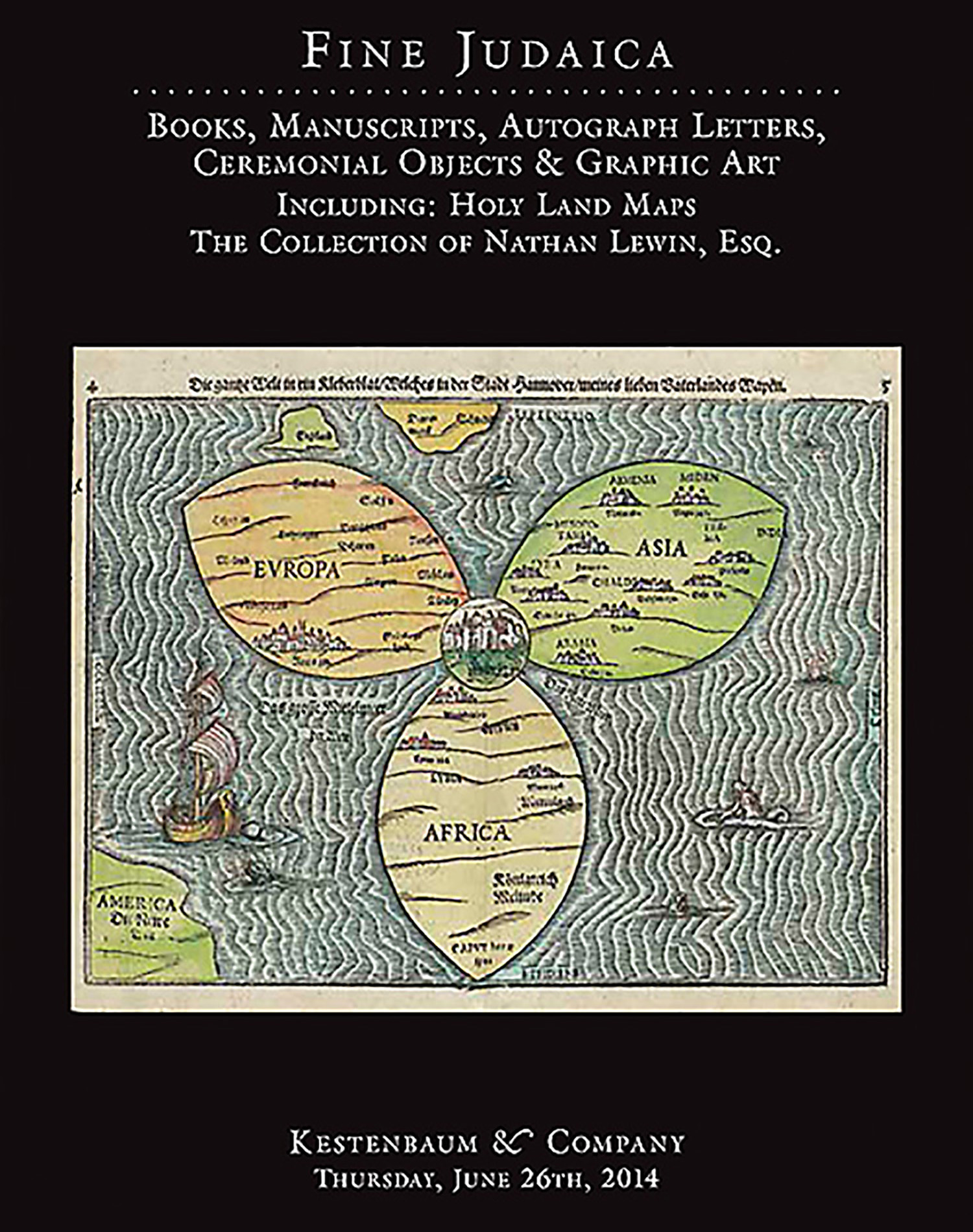Oration by Rev. Dr. E.M. Chapman… of Dallas, Texas and Essay by Rev. Sam’l Ullman… of Birmingham, Alabama Delivered at Temple Emanuel during the Convention of District Grand Lodge No. 7. Held in Birmingham, Ala. May 22nd, 1892.

AUCTION 62 |
Thursday, June 26th,
2014 at 1:00
Fine Judaica: Books, Manuscripts, Autograph Letters, Graphic and Ceremonial Art
Lot 22
(AMERICAN JUDAICA).
Oration by Rev. Dr. E.M. Chapman… of Dallas, Texas and Essay by Rev. Sam’l Ullman… of Birmingham, Alabama Delivered at Temple Emanuel during the Convention of District Grand Lodge No. 7. Held in Birmingham, Ala. May 22nd, 1892.
(Birmingham, Alabama): Levy Bros. & Simon 1892
Est: $5,000 - $7,000
Samuel Ullman (1840-1924) was a businessman, poet and humanitarian. Best known today for his poem “Youth,” a favorite of General Douglas MacArthur, Supreme Allied Commander in Japan, who often quoted from it in his speeches, leading the poem to become famed throughout Japan as a directive in regard to how to live one’s life, especially inspiring to the post-war Japanese seeking hope after their capitulation. Indeed it was the Japan-America Society that sponsored the establishment of the Samuel Ullman Museum in Ullman’s former Birmingham residence, currently operated by the University of Alabama at Birmingham.
Born in Hohenzollern, Germany, Samuel Ullman immigrated with his family to America at the age of eleven and settled in Port Gibson, Mississippi. After serving in the Confederate Army, he became a resident of Natchez, Mississippi. There, Ullman married, started a business, served as a city alderman, and was a member of the local board of education. In 1884, Ullman moved to the young city of Birmingham, Alabama, and was placed on the city’s first board of education. During his eighteen years of service, he advocated for equal educational benefits for black children and helping to establish a high school for blacks, a rarity in its time. In addition to his numerous community activities, Ullman also served as president and then lay rabbi of the city’s reform congregation Temple Emanu-El. Often controversial, but always respected, Ullman left his mark on the religious, educational and community life of both Natchez and Birmingham. In his retirement, Ullman found more time for one of his favorite passions, composing essays and poetry. His writings cover subjects as varied as love, nature, religion and family.
See Margaret E. Armbrester and Jiro M. Miyazawa, Samuel Ullman and “Youth: The Life, the Legacy” (2009).
